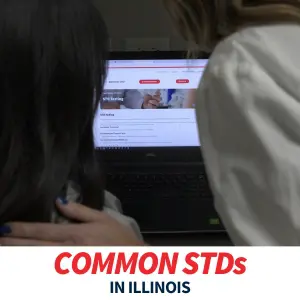How to Stay Safe Outdoor this Summer
From scenic hikes to whitewater rafting, there’s plenty of outdoor fun to be had in the summertime. That’s why it’s important to be prepared for outdoor hazards such as bee stings, poison ivy, poison hemlock and sunburns. Knowing how to handle these situations can help keep you and your loved ones safe. Read on to learn more about these common summertime hazards and how to prevent and treat them.
Bee stings
When a bee stings you, it releases venom that affects the immune system and skin cells. This causes swelling and pain around the sting area, which is temporary in most cases. However, people with a bee sting allergy can experience potentially life-threatening symptoms that require emergency medical attention. To treat a bee sting, follow these steps:
- Remove the stinger immediately by gently scraping it off with a credit card or your fingernail. Avoid squeezing or pinching the sting site.
- Wash the area with soap and water to prevent infection.
- Apply a cold compress or an ice pack to reduce swelling and pain.
- Over-the-counter antihistamines or topical creams can help alleviate itching and inflammation.
- If you experience difficulty breathing, dizziness or swelling in the face or throat, seek medical attention immediately.
Poison ivy
Poison ivy contains an oily resin called urushiol that can cause an allergic reaction when it interacts with the skin. A rash will develop and cause redness and itching and, in more severe cases, blisters and swelling. If you encounter poison ivy, follow the steps below:
- Avoid touching or scratching the affected area to prevent further spreading of the rash.
- Wash the exposed skin with soap and water as soon as possible.
- Apply calamine lotion or hydrocortisone cream to relieve itching and soothe the skin.
- Over-the-counter antihistamines can help reduce allergic reactions.
- If the rash is severe or covers a large area, consult a healthcare professional.
Poison hemlock
Poison hemlock is a highly toxic plant that can be found in every region of the U.S., typically in marshes and meadows and along fences. The plant has small, white flowers with petals that grow in an umbrella-shaped cluster, and every part of it is poisonous. Follow these tips if you’re exposed to poison hemlock:
- Wash the affected area thoroughly with soap and water.
- Seek immediate medical attention if you have ingested the plant or are experiencing nausea, vomiting, dizziness or difficulty breathing.
Sunburns
Sunburn is red, inflamed skin caused by extended exposure to UV rays from the sun. Most sunburns are mild and cause minor discomfort and irritation for a few days, while other cases are more severe and can result in skin peeling and blisters. To best protect your skin from sunburn, follow these tips:
- Avoid prolonged sun exposure, especially between 10 a.m. and 4 p.m. when the sun’s rays are strongest.
- Apply a broad-spectrum sunscreen with at least SPF 30 to all exposed skin areas, paying particular attention to your face, ears and neck.
- Wear protective clothing such as wide-brimmed hats, sunglasses and lightweight long sleeves.
- If you do get sunburned, take a cool shower or apply a cold compress to help relieve pain and reduce inflammation.
- Moisturize the affected area with aloe vera gel or a fragrance-free lotion to relieve the irritation and promote healing.
By taking precautions and knowing how to treat these common conditions, you can enjoy all that summer has to offer while keeping yourself and your loved ones protected.
If you need immediate treatment for a minor burn or rash, visit Midwest Express Clinic today. To find a location nearest you, visit midwestexpressclinic.com/locations.




